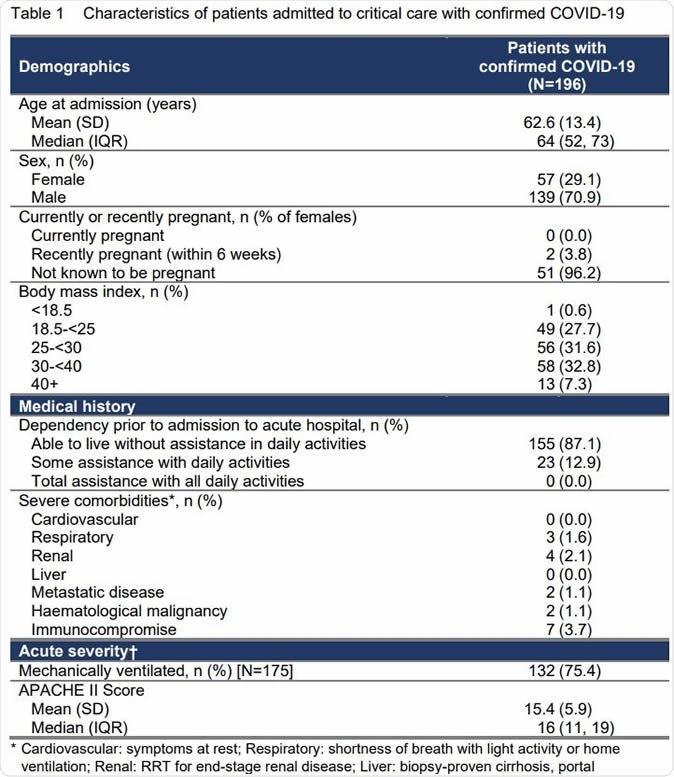Since the coronavirus disease (COVID-19) first emerged in China, a series of studies have provided a better understanding of the virus and how it affects the human body. Evidence shows that vulnerable or high-risk populations include older adults, those who are immunocompromised, and those who have underlying medical conditions. Overweight and obese people are also at a higher risk of developing severe coronavirus disease, a new report found.
Amid the novel coronavirus outbreak, doctors and health experts have found that certain groups of people are at a higher risk of developing severe COVID-19 disease. The identified groups are those who are over 65 years old, those who live in long-term facilities or nursing homes, those with underlying medical conditions, such as those with chronic lung disease, moderate to severe asthma, heart disease, diabetes, renal failure, liver disease, and those who are immunocompromised, including those undergoing cancer treatment. Health officials also warn those who are pregnant since they are at heightened risk from severe viral illness.
Obese people at higher risk
In the new report, seven in 10 patients admitted in intensive care units in the United Kingdom with coronavirus were those who are obese or overweight.
The team from the Intensive Care National Audit and Research Centre studied all admissions to critical care units in the UK. They reviewed in detail, the first 196 patients who were placed in critical care and found that those who developed severe illness was 63, and a seven out of 10 cases were males.
For instance, in the report, 56 patients had a BMI of 25 to 30, considered overweight, while 58 had a BMI of 30 to 40, and 13 had a BMI of 40 above.

Characteristics of patients admitted to critical care with confirmed COVID-19
The report sheds light on which groups of people needed round-the-clock care because they are at risk of severe COVID-19.
At present, the UK guidelines in reducing transmission of the coronavirus have mainly concentrated on those who are over 70 years old, especially those with other diseases. But the new data has shown that the age should be adjusted.
However, severely obese people have been advised to leave work and self-isolate, since they are at a high risk of severe coronavirus. They should also practice social distancing measures. Severely obese people are those with a body mass index of more than 40.
People needing critical care
The team also found that more than a third of those patients in critical care are under 60, which shows that not only those who are old are at risk. More males are also in critical care than women, and a majority of patients had severe comorbidities, such as lung disease or cardiovascular disease. Pregnant women or those who recently gave birth are also at risk, as two patients in the study were pregnant within the last six weeks.
It is also known in the past that obese people are more likely to suffer severe complications from infections, including the flu. Obese people are often prone to infections since their immune systems are busy warding off the inflammation in cells, making them overworked. In the advent that a severe infection occurs, such as the novel coronavirus, they may experience severe complications.
Further, obese people also tend to eat a diet low in antioxidants and fiber, like fruits and vegetables, which are crucial in boosting one's immune system. Lastly, obese people may have problems with breathing since excessive weight makes it harder for the diaphragm and lungs to expand.
What the WHO recommends
The World Health Organization emphasized the importance of eating a balanced diet and exercising regularly to reduce the risk of complications linked to COVID-19. Dr. Tedros Adhanom Ghebreyesus recommends that everyone should eat nutritious food to boost the immune system, limit alcohol intake, and avoid sugary drinks. People who are smoking should stop the habit, and everyone should exercise for about 30 minutes a day for adults, and about one hour for children.
Lastly, he reiterates the importance of protecting one's mental health by getting enough sleep and getting support from others during the health crisis.
Up to date, there are 381,621 confirmed cases and 16,563 deaths tied to the coronavirus disease.